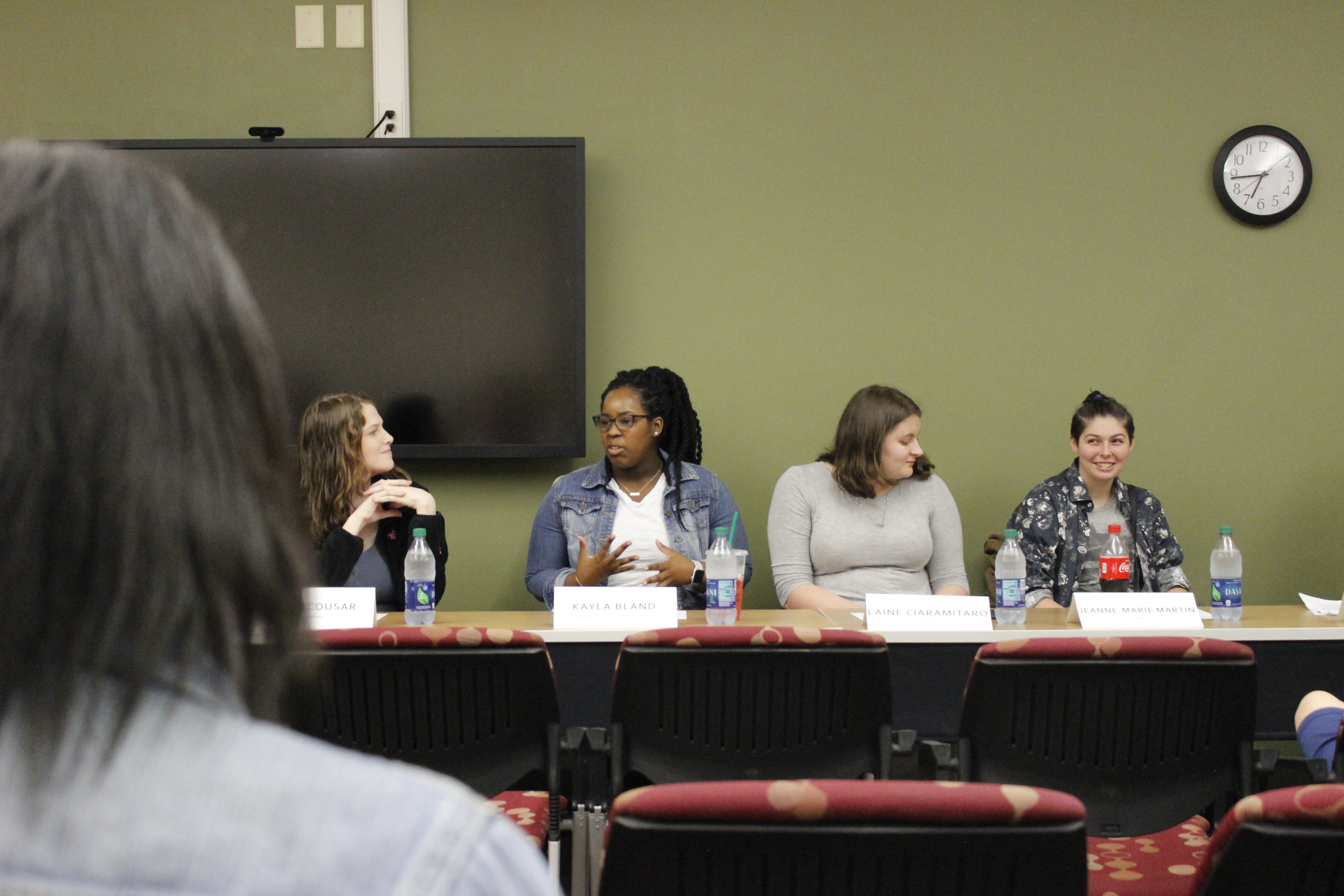Jean Marie Martin is a Spanish major at Winthrop who works with a medical alert dog who aids Martin with seizures and psychiatric disorders.
Martin talked about experience on campus and challenges faced as a student who needs a service animal. “Often times, people don’t understand my dog is not a guide dog,” Martin said.
Martin voiced frustration with faculty and professors that have not understood proper accommodation needs. Martin said that a professor said to sit in the back of the class permanently because the dog was a distraction to the professor. Martin said this experience made the class very uncomfortable to attend.
“It was hard to talk to anyone because I sat alone,” Martin said.
Kayla Bland is a business administration major at Winthrop with a double concentration in accounting and marketing and a minor in human resources. Bland has Crohn’s disease and an ileostomy bag attached to her abdomen. Bland said she has faced challenges related to the ileostomy bag, including during exams, and she said that instructors have not always been understanding of her needs and accommodations.
Laine Ciaramitaro is a biochemistry major at Winthrop who deals with dyslexia and migraines. Ciaramitaro explained some of the misconceptions she has experienced with having a learning disability.
“Some people think I can’t read,” Ciaramitaro said, adding that a lot of people think they are dsylexic off the general idea people have of dyslexia but actually are not. Ciaramitaro struggles with professors who are unsure of what she needs in terms of accommodations. Ciaramitaro said she struggles with explaining to professors that she does not have a normal headache but rather has intense migraines which hinder her ability to do regular activities. Some days Ciaramitaro has to leave class early to inject medication to help with her symptoms, which cannot be done inside the classroom.
“I am not trying to be rude by leaving in the middle of their class or lecture. I am trying to take care of myself,” Ciaramitaro said.
Sidney Koch is a candidate for a master’s in social work at Winthrop. Koch suffers from four disabilities and has had to utilize a wheelchair in the past year. Koch noted accessibility issues on campus, including the misuse of handicap parking by vehicles without the proper tags. Elevators on campus are a big issue for students like Koch. She said she has been late to classes when she is not in a wheelchair because other students in the elevator do not know she has a limitation.
Chris Mai is an MBA student who is visually impaired. He talked about how to approach conversations with faculty about accommodations. Mai has benefitted from contacting professors with details about their accomodations after the professors have been notified by the Office of Accessibility, andhe detailed how transparency has helped him receive the appropriate accommodations in the classroom.
Panelists who have service animals talked about the appropriate behavior other students should practice when interacting with students who have service animals.
Human resource major Jamel McCants attended the event and said that “people may not be cognizant enough to remove themselves from an elevator to allow someone in a wheelchair or on crutches to get on instead.”
“I can not begin to fathom how it must feel for a person with a disability to go through this,” McCants said. “[It] really upsets me to see people use the elevator from floor 1-2. Doing that is taking away from others who actually need it.”
McCants said that Winthrop could do more for students with disabilities by having more informational events like this event.
“This would then incline knowledge on the disabled population and would enable the campus as a whole to slowly but surely become more aware of their student body’s needs,” McCants said.
Photo: Tate Walden/ The Johnsonian




